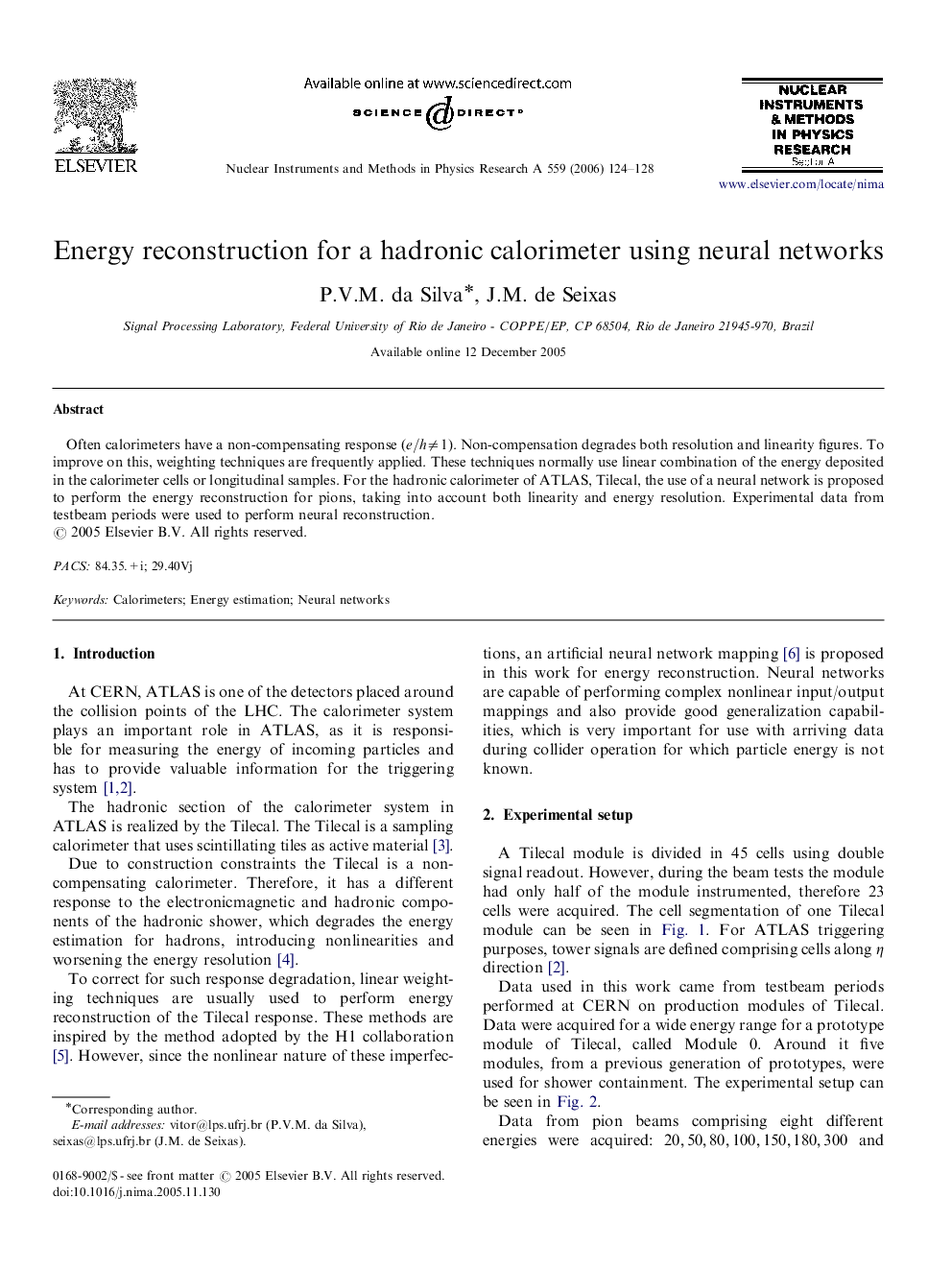| Article ID | Journal | Published Year | Pages | File Type |
|---|---|---|---|---|
| 1833023 | Nuclear Instruments and Methods in Physics Research Section A: Accelerators, Spectrometers, Detectors and Associated Equipment | 2006 | 5 Pages |
Abstract
Often calorimeters have a non-compensating response (e/hâ 1). Non-compensation degrades both resolution and linearity figures. To improve on this, weighting techniques are frequently applied. These techniques normally use linear combination of the energy deposited in the calorimeter cells or longitudinal samples. For the hadronic calorimeter of ATLAS, Tilecal, the use of a neural network is proposed to perform the energy reconstruction for pions, taking into account both linearity and energy resolution. Experimental data from testbeam periods were used to perform neural reconstruction.
Related Topics
Physical Sciences and Engineering
Physics and Astronomy
Instrumentation
Authors
P.V.M. da Silva, J.M. de Seixas,
